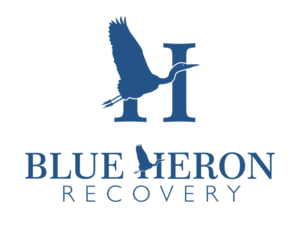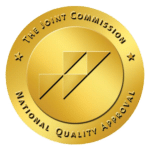Overcoming addiction is a journey that requires support, structure, and a variety of treatment options to meet each person’s needs. There are several ways to approach recovery, such as inpatient rehab, outpatient programs, and a lesser-known but highly effective option called a partial hospitalization program (PHP). This program combines intensive care with the flexibility of going home each day. In this blog, we’ll explore what a partial hospitalization program is and how it can help individuals make meaningful progress toward overcoming addiction.
What is a Partial Hospitalization Program (PHP)?
A partial hospitalization program (PHP) is a structured addiction treatment program that offers a high level of support without requiring patients to stay overnight. PHPs are designed to provide intensive care similar to inpatient treatment, but patients can return to their homes in the evenings, allowing them to balance treatment with everyday life.
PHPs usually involve a full day of therapy and support services several days a week, often totaling 20 to 30 hours per week. The daily schedule may include individual counseling, group therapy, and medical check-ins. Unlike inpatient programs, which require patients to stay on-site full-time, a partial hospitalization program allows individuals to get intensive care while still maintaining some independence. This balance between treatment and home life makes PHPs a unique and effective option for many people.
Key Benefits of Choosing a PHP for Addiction Recovery
For those seeking help with addiction, a partial hospitalization program offers several benefits that make it an attractive choice:
Intensive Support Without Overnight Stays
One of the biggest benefits of a PHP is that it provides a high level of support without requiring patients to stay overnight. This setup can be beneficial for people who have responsibilities at home, like family or work, but still need more structured help than what’s offered in an outpatient program.
Balanced Therapy, Counseling, and Medical Care
A partial hospitalization program combines various treatment approaches into one schedule. Patients receive individual therapy, group counseling, and regular medical care to address both the emotional and physical aspects of addiction. This balance ensures that all areas of health are considered, giving individuals the tools they need to manage their recovery journey effectively.

Therapies and Treatment Modalities in PHP
A partial hospitalization program includes a wide range of therapies and treatments, each designed to support different aspects of recovery. Here are some of the key treatment methods used in a PHP:
Types of Therapies Offered
PHPs offer therapies such as cognitive-behavioral therapy (CBT), which helps individuals identify and change negative thought patterns that contribute to addiction. Group counseling is also common, allowing patients to connect with others facing similar challenges and to share their stories and support.
Medical Supervision and Medication Management
For some patients, medical support is an important part of recovery. In a PHP, medical professionals are on hand to monitor physical health, adjust medications if necessary, and ensure that patients are progressing safely. This level of medical care is often vital for managing withdrawal symptoms and ensuring a stable recovery environment.
Support and Community Building in PHP
Another important part of a partial hospitalization program is the sense of community it fosters. Addiction recovery can feel isolating, but PHPs offer a place where people can connect and support one another.
Importance of Peer Support and Shared Experiences
In a PHP, patients often participate in group therapy, which provides a sense of belonging and shared understanding. Being around others who are also working toward sobriety can be incredibly encouraging, as it reminds patients that they’re not alone in their struggles. Peer support can create meaningful relationships that make the recovery journey easier.
Developing Relationships That Support Recovery
Connecting with others in a PHP can lead to lasting friendships and support networks. These relationships can be a valuable source of encouragement and accountability, helping individuals feel connected even after they complete the program.
Skills Development for Lasting Sobriety
A partial hospitalization program isn’t just about stopping substance use—it’s about building a sustainable lifestyle that supports long-term sobriety. PHPs teach essential skills that patients can carry with them long after treatment ends.
Learning Coping Mechanisms and Life Skills
PHPs focus on helping individuals develop coping strategies for handling everyday stressors and challenges without relying on substances. Learning how to manage stress, handle conflict, and regulate emotions is essential for a successful recovery. A PHP provides opportunities to practice these skills in a supportive environment.
Emphasis on Relapse Prevention and Emotional Regulation
Relapse prevention is a key part of a partial hospitalization program. Patients learn to recognize their triggers and develop plans for handling situations that could lead to relapse. Emotional regulation skills are also taught, helping individuals deal with intense feelings in healthy, constructive ways rather than turning to substances.
How PHP Bridges the Gap Between Inpatient and Outpatient Care
A partial hospitalization program serves as a bridge between the structured support of inpatient treatment and the independence of outpatient care. PHPs offer a high level of support, but they also encourage patients to start practicing independence, making them ideal for people transitioning from inpatient care.
Transitioning to More Independent Recovery Settings
For individuals coming out of an inpatient program, PHPs provide a step-down level of care that still offers structure while allowing more freedom. This transitional approach helps patients gradually adjust to more independent living, making it easier to handle everyday challenges.
Continued Access to Resources and Aftercare Options
Many PHPs also provide ongoing resources, such as therapy and aftercare groups, even after the primary program ends. This continued access to support is vital for maintaining the progress made during treatment and for navigating the ups and downs of recovery.
Contact Our Team Today
A partial hospitalization program is a powerful option for people looking to overcome addiction while balancing everyday responsibilities. With its combination of therapy, medical support, and community connections, a PHP offers comprehensive care that can set individuals on the path to a healthier life. By choosing a partial hospitalization program, you can get the help you need to build lasting skills and relationships that support sobriety.
If you or a loved one is ready to take the first step toward recovery, consider exploring a partial hospitalization program as a path to meaningful change. Contact our team at Blue Heron Recovery at (210) 588-0508 to schedule a consultation with our intake specialist to learn more about how our partial hospitalization program can support your journey to recovery.




